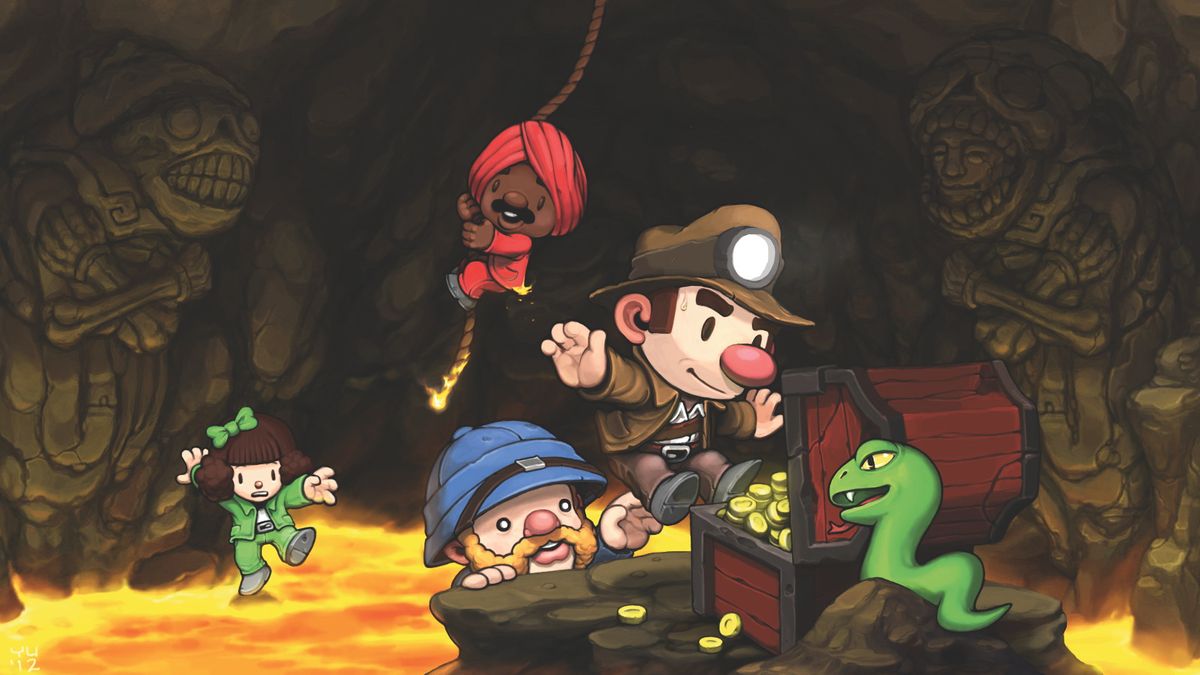
A developer on Spelunky, one of the most acclaimed roguelikes of all time, says that developing for that genre is "more interesting" than in others.
Earlier this week George Fan, creator of Plants vs Zombies, released a new puzzle game, Hardhat Wombat. While speaking to 12DOVE about it, Fan discussed the nature of puzzle development, and the need to deliberately account for different types of solutions. That stands in contrast to some of Fan's other work, like PvZ, in which he says "the gameplay was random enough" to keep the testing process fresh.
"I think a lot of the reason people enjoy working on roguelikes," he says, "is that as a developer of the game, you can play the game a lot like a player would." The idea is that thanks to random maps and upgrades, a roguelike will rarely play the same way twice, and that makes testing the game inherently different every time it's played, whether by a player or a QA tester.
Thankfully, I didn't have to take Fan's word for it. His development partner on Hardhat Wombat was Andy Hull, lead programmer on Spelunky, a game still treated as one of the best roguelikes of all time. When I put Fan's comments to Hull via email, he admitted that finding a new approach for every new testing playthrough had been something of a challenge.
"Making a puzzle game like Hardhat Wombat does really require you to consciously try and remind yourself of what a new player would be experiencing. After solving each level once [...] it was very hard to judge the difficulty of the puzzle precisely." Hull says he'd "fall into bad habits" during testing by constantly approaching each puzzle the same way - "I had to force myself to try odd solutions to make sure everything was working correctly."
On Spelunky, however, things were slightly different. Hull says that "because the experience was random each time, I was more likely to naturally try new tactics and combinations. Playing random levels is certainly more interesting when you spend so many hours testing during development." The unfortunate payoff, however, is the amount of time that adds to things like bug fixing, as it gets harder to find all the potential variants of a specific means of playing.
For all that complexity, the inherent variety does seem to keep developers and players coming back. Spelunky might be close to the peak of the genre, but the roguelike has a rich history and remains a hugely exciting part of the indie scene today.
Sign up to the 12DOVE Newsletter
Weekly digests, tales from the communities you love, and more
Don't believe us? Check out our list of the best roguelikes.

I'm GamesRadar's news editor, working with the team to deliver breaking news from across the industry. I started my journalistic career while getting my degree in English Literature at the University of Warwick, where I also worked as Games Editor on the student newspaper, The Boar. Since then, I've run the news sections at PCGamesN and Kotaku UK, and also regularly contributed to PC Gamer. As you might be able to tell, PC is my platform of choice, so you can regularly find me playing League of Legends or Steam's latest indie hit.
Most Popular
